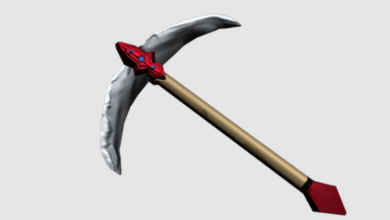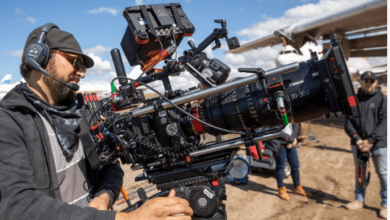Exploring the Diversity of Drilling Machines: A Comprehensive Guide to Different Types of Drilling Machines

Drilling machines are fundamental tools in various industries and applications, ranging from construction and manufacturing to woodworking and metalworking. They come in a diverse range of types, each tailored to specific drilling tasks and materials. In this comprehensive guide, we will delve into the world of drilling machines, exploring the various types, their features, applications, benefits, and considerations.
1. Handheld Drill Machines
Handheld drill machines, also known as portable drills, are versatile tools suitable for light-duty drilling tasks and DIY projects. They are compact, lightweight, and easy to maneuver, making them ideal for drilling holes in wood, plastic, and thin metal sheets. Handheld drills are available in corded and cordless variants, offering flexibility and convenience based on the user’s needs.
2. Drill Press Machines
Drill press machines, also called bench drills or pillar drills, are stationary machines commonly found in workshops and manufacturing facilities. They feature a vertical column, a worktable, and a spindle with a rotating drill chuck. Drill press machines excel in precision drilling tasks, making them suitable for accurate hole drilling in metal, wood, and other materials due to their stable and rigid design.
3. Impact Drill Machines
Impact drill machines are specialized tools designed for drilling into hard materials such as concrete, masonry, and stone. They incorporate a hammering action that applies high-impact force to the drill bit, facilitating faster and more efficient drilling in tough surfaces. Impact drills are widely used in construction, renovation, and masonry projects due to their ability to handle challenging drilling tasks.
4. Rotary Hammer Drill Machines
Rotary hammer drill machines are heavy-duty tools specifically designed for drilling into concrete, brick, and stone surfaces. They feature a hammering mechanism that delivers both rotational and percussive forces, allowing for rapid drilling and chiseling in tough materials. Rotary hammer drills are indispensable in construction, demolition, and drilling through hard surfaces with ease.
5. Cordless Drill Machines
Cordless drill machines offer mobility and freedom of movement without the constraints of being tethered to a power outlet. They are powered by rechargeable batteries, making them different types of drilling machine convenient for outdoor projects, remote locations, and areas without electricity access. Cordless drills come in various sizes and configurations, providing versatility for different drilling tasks while offering the convenience of portability.
6. Magnetic Drill Machines
Magnetic drill machines, also known as mag drills, are specialized tools used for drilling holes in large and heavy workpieces, especially metal structures. They feature a magnetic base that adheres to ferrous surfaces, providing stability and precision during drilling operations. Magnetic drill machines are commonly used in metal fabrication, construction, and manufacturing industries for their efficiency and accuracy.
7. Radial Drill Machines
Radial drill machines feature a radial arm that can be adjusted and positioned to drill holes at different angles and distances from the workpiece. They offer versatility in drilling large and heavy components, as well as batch drilling multiple holes with accuracy and consistency. Radial drill machines find applications in metalworking, fabrication, and engineering workshops, providing flexibility in drilling operations.
Benefits of Different Types of Drilling Machines
- Versatility: Each type of drilling machine is designed for specific applications, offering versatility in drilling various materials and surfaces.
- Precision: Drilling machines provide precise drilling results, ensuring accurate hole placement, depth, and diameter based on the user’s requirements.
- Efficiency: Different drilling machine types offer efficiency in drilling tasks, whether it’s light-duty drilling, heavy-duty applications, or drilling into hard materials.
- Convenience: Cordless drill machines and portable drills offer convenience and mobility, allowing users to work in different locations without restrictions.
Considerations When Choosing a Drilling Machine
- Application: Determine the type of drilling tasks you’ll be performing (light-duty, heavy-duty, masonry, metalworking, etc.) to choose the most suitable drilling machine.
- Material Compatibility: Consider the materials you’ll be drilling into (wood, metal, concrete, etc.) and ensure the selected drilling machine is compatible with those materials.
- Power Source: Decide between corded and cordless options based on your workspace, mobility needs, and availability of power outlets.
- Drilling Capacity: Evaluate the drilling capacity (maximum hole diameter and depth) of the machine to ensure it meets your project requirements.
- Features and Accessories: Look for additional features such as variable speed settings, depth stops, LED lights, and accessory compatibility to enhance functionality and versatility.
Conclusion
The diversity of drilling machines caters to a wide range of drilling tasks, materials, and industries, providing users with options to meet their specific needs and requirements. Whether it’s handheld drills for DIY enthusiasts, drill press machines for precision drilling, impact drills for masonry work, or specialized machines like magnetic drills and radial drills for industrial applications, understanding the features, applications, benefits, and considerations of different drilling machine types is essential for efficient and successful drilling operations across various sectors.




